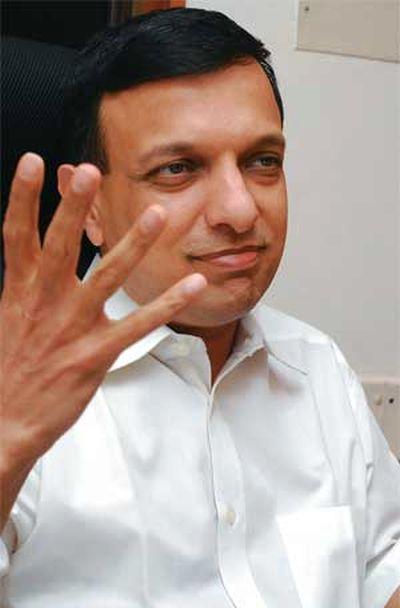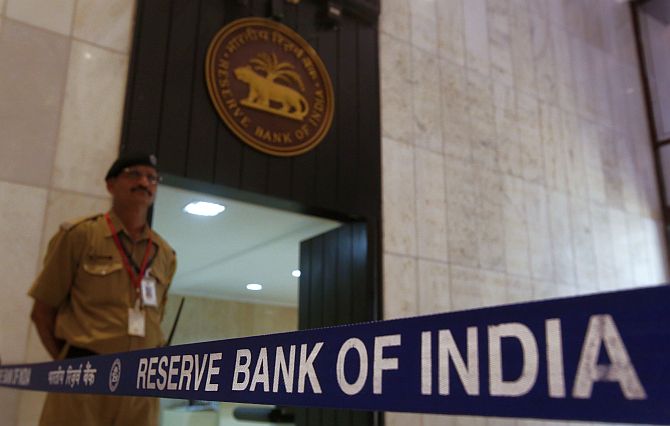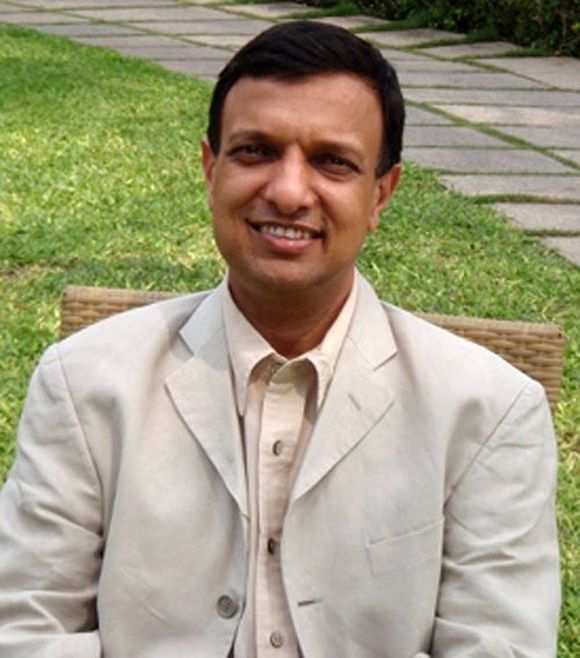 | « Back to article | Print this article |
Nachiket Mor: A banker who is never short of ideas
Nachiket Mor is a man of ideas. He is so passionate about his projects that sometimes he overpromises and fails to live up to expectations.
This is probably the reason why many feel his recommendations on ensuring comprehensive financial services for small businesses and low-income households are too ambitious and executing them is practically impossible.
A Reserve Bank of India (RBI) panel, chaired by Mor, envisages a situation where each Indian above the age of 18 years will have a full-service, safe and secure electronic bank account by January 2016.
In a country, where 40 per cent of the population still does not have access to financial services, offering a bank account to every adult citizen in two years certainly looks improbable.
Some voiced their disapproval in public, while a few chose to criticise the 49-year-old banker's ambitious targets in private.
Axis Bank's Chief Executive Shikha Sharma and Bank of Baroda's Chairman and Managing Director SS Mundra, who were part of the Mor committee, were clearly unimpressed.
Click NEXT to read more…
Nachiket Mor: A banker who is never short of ideas
"Looking at the enormity of the task, particularly in low density rural areas, and the need of supporting physical as well as virtual infrastructure vis-a-vis their present state, the timeline looks rather pressing. While January 2016 can be an aspirational goal, given the scale of the task, a target date of January 2018 may be more realistic and implementable," they wrote in a letter (that was shared with the media) addressed to Mor.
The bankers also questioned some of the other recommendations like the proposal to create a payment bank, differential provisioning norms at the level of each asset class and the need for banks to publicly disclose the results of their stress tests.
Pratip Chaudhuri, former chairman of State Bank of India, feels that Mor's recommendations will not become reality till banks incentivise individuals by waiving the minimum balance requirement and account maintenance charges.
But it is unlikely that these criticisms will deflate Mor's ambition to achieve financial inclusion in quick time. He is known to do things differently and take up challenges that appear insurmountable.
An MBA from the Indian Institute of Management, Ahmedabad (IIM-A), he also holds a PhD degree in finance from University of Pennsylvania and a world fellow in public health and economic development from Yale University.
Mor was once seen as a front-runner for the corner office at ICICI Bank, the country's largest private lender. But in early 2008, he moved to ICICI Foundation, a non-profit organisation for promoting inclusive growth.
Click NEXT to read more…
Nachiket Mor: A banker who is never short of ideas
He quit ICICI Foundation in 2011 and has since spent most of his time away from the spotlight - in the social sector. That he thinks differently is evident from his different initiatives.
He started Kshetriya Gramin Financial Services, a microfinance company, in an uncertain economic environment and expanded its operations even though the sector was battling a crisis of confidence.
RBI certainly appeared impressed with his efforts as Mor was inducted on the board of the central bank in May 2013, four months before his IIM-A batchmate, Raghuram Rajan, took charge as the governor.
Mor was named as the head of the 13-member committee of RBI to formulate a vision for financial inclusion in India.
He has also been included in the four-member high-level advisory committee (headed by former RBI governor Bimal Jalan) that will examine banking licence applications.
Mor's colleagues, both present and former, admire his determination to take up challenges. One thing is for sure, Mor's ideas may not always work, but he will never be short of them.



